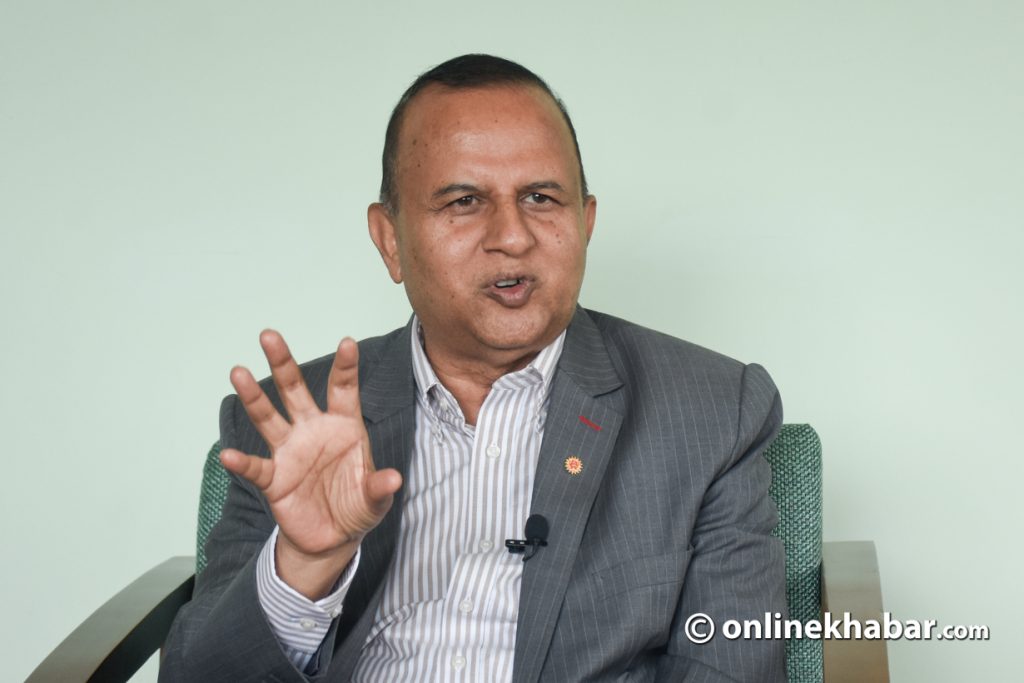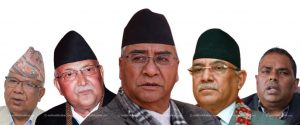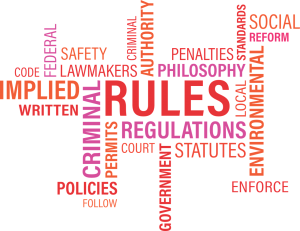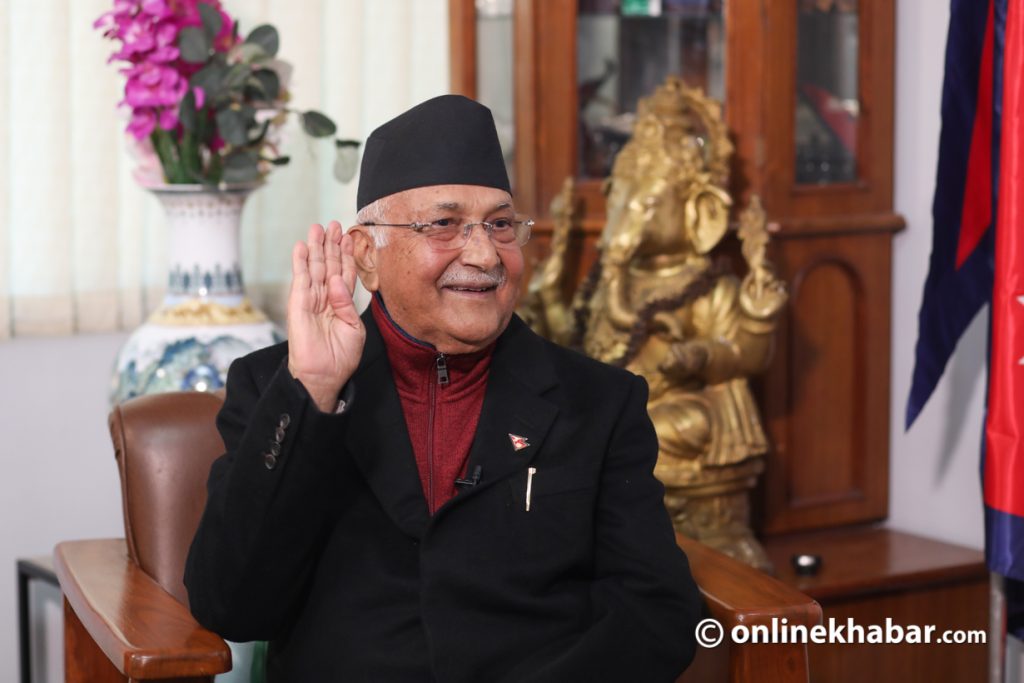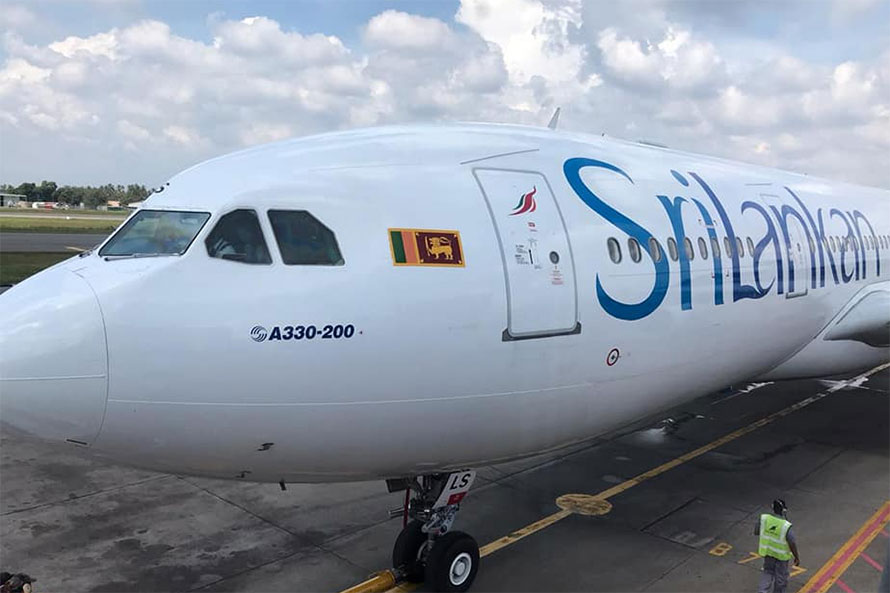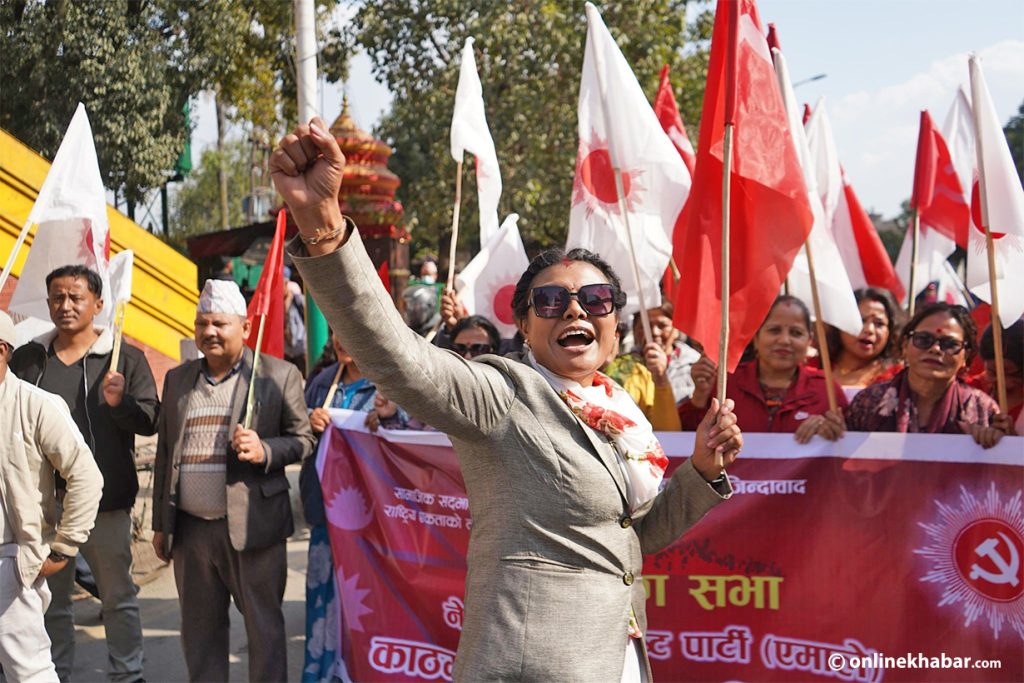
Gyan Khatri, 77, from Saidhaki in Ghorahi sub-metropolitan city in Dang has been voting since the Panchayat era. Every time the elections are near, he is full of excitement as he gets hopeful with all the dreams about physical infrastructure development that different politicians sell him. He also likes how leaders come and listen to his issues.
“Now, all I want them to do is give us access to drinking water. That’s it,” says Khatri.
Leaders since the Panchayat era have been promising people like Khatri that they will get drinking water in their homes. But, even though most homes now have a tap, they do not have access to running water. Many leaders have come and gone and know what the locals need. They have even promised people like Khatri, but have not fulfilled their promises.
Now at 77, Khatri feels like the leaders have disrespected people like him. He feels they do not value or respect them as they always seem to fulfil promises made to people they value.
“We have to walk an hour to get water even during the monsoon. It feels unfair,” says Khatri.
But, it is not only about the intention of these politicians. In fact, they do not have much power as far as physical infrastructure development is concerned. Yet, hundreds of candidates have been giving out fake promises to get the votes of the public who are always hopeful things might change. This is what the candidates for the upcoming federal and provincial elections are doing.
These candidates are going door to door, promising drinking water, roads, bridges and other infrastructure development. Most voters believe them, which shows how the voters and candidates are similar. The voters do not know what a federal and provincial lawmaker can and cannot do nor do they know their limitations. Without knowing this, these people happily go and vote for a candidate believing the change they want will happen this time.
Deceiving the electorate

House of Representative candidate for Kathmandu 2, Onsari Gharti Magar, knows the roles and responsibilities of a lawmaker. “A leader wants to develop the country, not just one constituency. That is my goal too,” says Magar, who has also served as a house speaker in the past.
But during her campaigning, she is contradicting this statement as she is also seen promising physical infrastructure development. During one of his recent speeches, Magar yelled, “If I become a lawmaker, I’ll make sure I’ll end the traffic congestion at Koteshwor.”
In the same event, she also said she would resign from her post as a lawmaker if the Jorpati-Sankhu road section is not completed within two years. She also wants to develop Sankhu as a tourist destination and solve the flooding issues in Dakshin Dhoka and Mulpani. She also promised to complete the Mulpani cricket ground.
Adding to Magar’s comment, Maoist Centre chairman Pushpa Kamal Dahal added that he would make Magar a minister looking after physical infrastructure development. Dahal himself during a rally in Gorkha promised to get the Palungtar airport into operation.
Pancha Karna Rai, a former lawmaker and provincial assembly member candidate from Kotang is taking things to another level. During his campaign, he is carrying a poster with him claiming he played a role in building a bridge in Jayaramghar. But, he did not play a major role as all he did was be a consultant.
To gain votes, many lawmakers and leaders are going door to door with their infrastructure development plans. Roads, bridges, schools and temples are on many of their agendas. This, they feel gives them a better chance to get votes as it has been tried and trusted method for years.
“People want to see development. It’s in the psyche so that’s what we do,” says a candidate.
Rangamati Shahi, an outgoing lawmaker, says that Nepali leaders have failed to come out of this trend as they believe they can only get votes if they claim to fulfil the small demands of the people. But, most lawmakers, after getting elected, do little to nothing as they just do not have the power or the influence to create any change unless they become ministers, says Shahi.
Knowing the roles

Even the country’s constitution and laws do not tie lawmakers to physical infrastructure development. The role of a lawmaker is to make policies and laws to govern the country. But, during the election campaigning, it feels like the people are not voting for lawmakers but voting for local development officers instead.
“To win the election, they are saying anything they want. But, no one actually thinks about what they can actually do as a lawmaker because some people can’t do anything,” says Shahi.
The constitution governs the lawmakers and what they can and cannot do. The constitution clearly states the role of both federal and provincial lawmakers is to draft bills, policies and long-term plans.
They are also tasked with discussing bills and making them comprehensive before they are passed, bringing new bills themselves and raising issues plaguing the country. There are even many examples in Nepal where lawmakers have influenced long-term policies through resolutions.
Lawmakers in 1991 brought policies regarding economic, trade and industrial liberalisation. In 1994, the government then put forward issues regarding the need for social security. These two policies are still considered very important decisions for the country’s long-term growth.
Another example of a progressive policy is the country becoming a democracy. The house also passed a resolution to give 33 per cent reservation to women in public positions. Thile resolution is even implemented by the house itself. Many also remember the laws drafted in 2011 that helped change caste-based discrimination issues in the country.
“The proposal that was put forward in 2011 is the foundation stone for the change in case-based discrimination. We can see Dalits and other castes at the national level offices, which is good news,” says former chair of Nepal Law Commission, Madhav Poudel.
But, the lawmakers who came after that have failed to work towards the long-term development of the country. Even the lawmakers have failed to put some bills they want in the house which shows how ineffective they can be.
The tied hands

Another role of the lawmaker is to draft the country’s budget including that for physical infrastructure development. They make laws on how much tax needs to be collected from which sector, which will then become the country’s main source of revenue.
Such is the role of the House of Representatives that the Finance Bill is only presented in the lower house. The National Assembly can suggest changes, but it cannot amend the bill as that role is given only to the House of Representatives.
This is why a lawmaker needs to be aware of the budget and the country’s finances. Any failure to do so can result in long-term problems for the country. Despite that, the country leaders, rather than attending discussions on budget, go from ministry to ministry asking for money so they can fulfil infrastructure development promises they made to the people.
“Lawmakers feel they have to go to ministries and be close to senior leaders to get anything done. This is still the case today,” says Shahi.
A lawmaker also is tasked with forming the government. The constitution states this. But this has resulted in many lawmakers getting in the race to become ministers. In a bid to become ministers, lawmakers have been agreeing to anything the ruling party leader says. Those who become ministers do some infrastructure development work in their constituencies, but many lawmakers who do not get to become ministers, are left empty-handed with no development work being done.
There are many who say that many lawmakers have not been able to explain their actual role to the people. Even just because they have become ministers, they cannot use up the country’s budget to make a bridge or road in a specific area. Lack of awareness among voters about this is creating major issues, say experts. As this is happening, the candidates take advantage of the lack of awareness and say ‘I’ll do it” to whatever the voter asks them for.
Knowing the limits
The constitution of the country does not state that a lawmaker can play a role in physical infrastructure development. So when a lawmaker says they will carry out specific development works in their constituencies, they are just doing so to gain votes. Even a minister does not have such power.
Former chair of the Law Commission, Paudel says while a lawmaker can practically declare their commitment to facilitate physical infrastructure development, it is wrong for them to say that they will do this.
“They can say they will put pressure on the government to do a particular thing but saying ‘I’ll do it’ is a lie. They don’t have the authority to do so,” says Paudel, who adds this can only be done by the local and provincial executives.
All the lawmakers can do, according to Paudel, is offer suggestions on what might be an important project and why. And, even, their suggestions are not legally binding.
This story was translated from the original Nepali version and edited for clarity and length.






